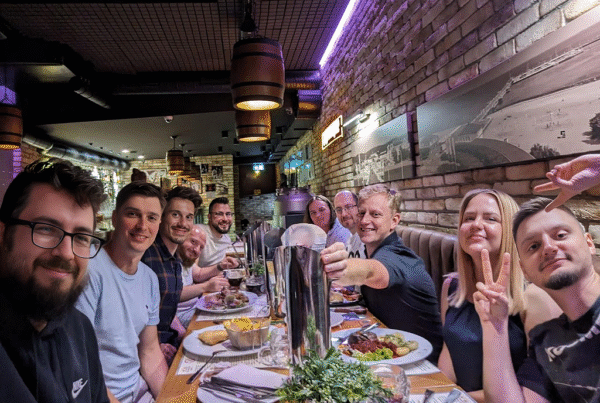A company doesn’t lose control of recruitment simply because there are no candidates.
It doesn’t even happen when the hiring team isn’t sure where to look.
The real breakdown occurs much earlier, and yet paradoxically, it is usually discovered far too late: when the company no longer knows who it is looking for, or why it needs this role right now.
In conversations with leaders, we often hear role descriptions that sound like a checklist: “Let’s hire a DevOps engineer with Docker, Kubernetes, AWS – and if they know Terraform, even better.”
But when we dig deeper, the real need usually turns out to be something else entirely:
- addressing long-standing technical debt,
- filling a gap left when someone left the team,
- or preparing for growth that the current team cannot support.
At this point, you need to ask yourself a question: Do you truly need a DevOps engineer, or do you need someone who can solve the specific business and technical problem in front of you?
Recruitment, in that sense, should never start with a job ad. It should start with a conversation about context.
Why the Wrong Hire Hurts More Than No Hire
It may sound counterintuitive, but hiring the wrong engineer often costs more than leaving the position unfilled.
The wrong person doesn’t just underperform, but may also slow teams down, create friction, or generate costs that aren’t always obvious until much later.
That’s why outsourcing, despite what many believe, is not about speed, but about precision.
When you need engineers, you want to look for professionals who bring alignment on three levels:
- Technical fit – engineers who match your stack and are validated by technical experts. (Every candidate is interview by our DevOps specialists; the candidates we recommend to clients come with a Talent Summary report)
- Cultural fit – people who can blend into your team and grow with it, rather than disrupt it. (We identify this during our free Talent Briefing survey and through structured multi-level needs analysis across engineers, team leads, and management.)
- Business understanding – talent that understands not just the task list, but your company’s goals. (That’s why we combine recruitment with HR/Tech consulting, offering a Talent as a Service model that includes training, performance monitoring, team integration, as well as a 14-day trial for staff or 90-day guarantee for recruitment..)
Rethinking Recruitment
What this shows is that recruitment is less about filling roles and more about understanding context.
Why is the role needed?
What will success look like six months in?
How will this person change the trajectory of the team?
When companies treat recruitment as an extension of problem-solving rather than a transactional process, they tend to build stronger, more resilient teams.
This is why, when it comes to DevOps recruitment outsourcing, our partners stay with us. Not because we’re the cheapest option on the market, but because we are closest to how they build their teams internally.


